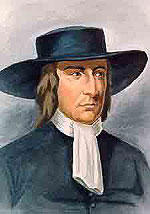

Temple's Diary
A Tale of Benjamin Franklin's Family
In the Days Leading up to The American Revolution
And here is George, with a nice bouquet of Christmas holly for Aunt Sally and one for Aunt Jane, each with a proper compliment: "Mrs. Mecom, with my mother's best wishes. Welcome to Philadelphia," and "Mrs. Bache, with greetings from our family." George should really enter the Diplomatic Service some day, he looks so neat, wearing his glasses and freshly pressed clothes. He is on a mission of enlightenment.
I open the conversation: "George," I say, "I remember that about three years before I left England — I would have been about twelve — there was much to-do about a black man called Somersett, but I must admit that my memory is hazy ..."
— "Hazy or not, you have come up with the perfect starting point," answers the always-tactful George. "Before Somersett, any slave who tried to escape his awful fate in the West Indies by coming to Britain was immediately sent back to his master, to face some dreadful punishment. But on June 12, 1772 (remember that date, Billy!), Lord Mansfield, of the King's Bench, decreed that as soon as a slave set foot on the soil of the British Isles, he became free. That did not mean the abolishment of all slavery, but it was a step forward."
— "It seems to me," I say — trying to show I know a little bit about that topic — "that there are more people in England than here who take an interest in the problem. The Associates of Dr. Bray, for instance ..."

George Fox (1624-1691)
— "Oh yes," says George. "Indeed, the impetus for the abolition of slavery was given, a whole century before the Somersett case, by the founder of the Society of Friends, George Fox, a man whose name I am proud to bear, though I am not a descendant. You will be glad to hear, Mrs. Bache, that the Pennsylvania Quakers were taking action against slavery still earlier than those in England. I am certain that pretty soon we will hear that all slaveholders who refuse to emancipate their slaves will be excluded from our membership."
Aunt Sally nods and smiles politely.
— "We have no slaves in Massachusetts," repeats Aunt Jane. Aunt Sally almost drops her knitting, but says nothing. Contradicting Aunt Jane, as we all know, is a risky business.
George turns to me: "Temple, do you know what is the proportion of blacks to whites in the colonies, taken as a whole?"
I have no idea.
— "One out of five at this time. Can you imagine the amount of misery that represents?"
— "George, don't you think my grandfather should do something about it?"
Both aunts gasp. Telling Dr. Franklin what to do! The poor boy must be out of his senses!
— "I don't think that at present he is ready for such a move," answers George calmly. "But we all feel sure in my family that the day will come."
— "What makes you so sure?"
— "I'll tell you. My father is convinced that sooner or later Dr. Franklin will be sent to some European country to talk that country, probably France, into giving us help against England. And Europe, at this point, is embracing a new way of looking at the world, a more humane and generous way. In England, says my father, the movement is called 'The Enlightenment,' in France they say 'Les Lumières,' 'The Lights.' The power of human reason is more appreciated now, even if it goes against tradition. By the way, that is why your grandfather received such a hero's welcome when he visited Paris: it was because of his idea of installing lightning rods on buildings instead of ringing church bells during a storm.
"Your grandfather is the kind of man who learns new things when he travels. He will see that the French are turning against slavery — not yet in the West Indies, where the sugar planters will put up a big fight to keep their slaves — but in France itself. They are about to pass a law over there, forbidding the slave traders to land Africans anywhere in the country. Dr. Franklin's attitude toward slavery will have changed by the time he comes back, you'll see."
All I can say is: "I certainly hope so."
